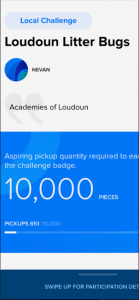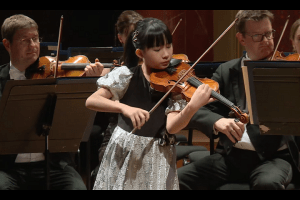The constant growth of Litter in the United States is gradually getting worse. Over 51 billion pieces of litter land on U.S. roads each year. The threat of waste is detrimental to the environment, health, and safety.
Literati is an app that offers challenges to pick up certain amounts of trash in specific areas to help clean them. The total trash count for the app as of now is 4.8 million pieces. This app also offers global and local challenges and sets a goal amount of trash. It also explains how each project will help the environment.
#Loudoun Litterbugs is a group composed of students at the Academies of Loudoun. The goal of this group is to raise awareness for the emerging issue of litter and to pick up 10,000 pieces of trash by the end of the school year. So far, through the first 2 months, this group has collectively picked up 651 pieces of trash. Encouraging others in Loudoun County to pick up and document trash that they see is also a priority of Loudoun Litterbugs.







